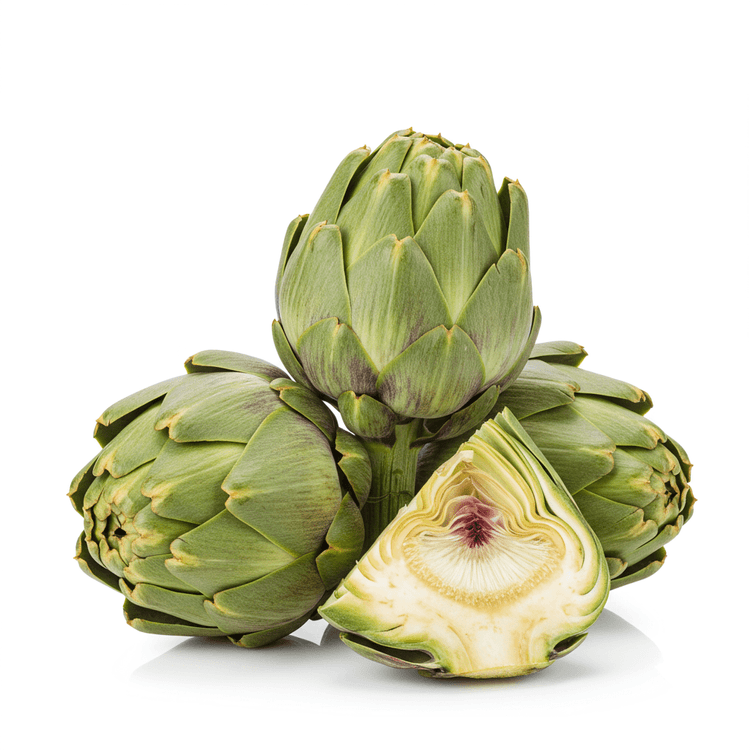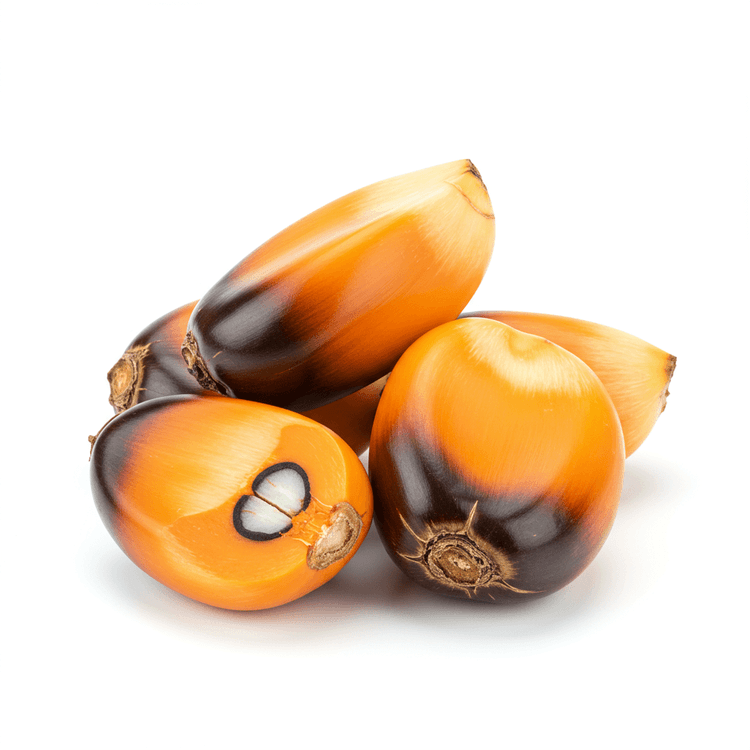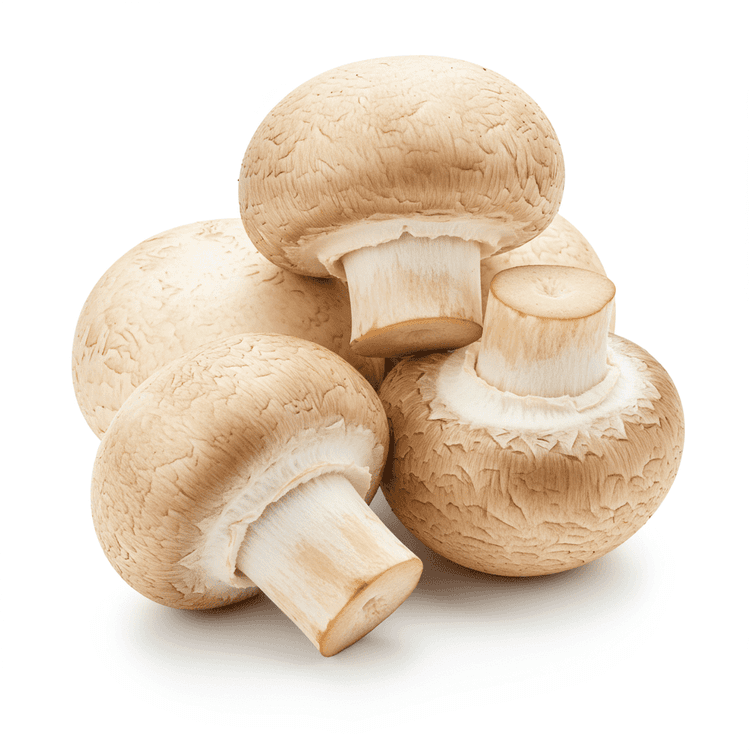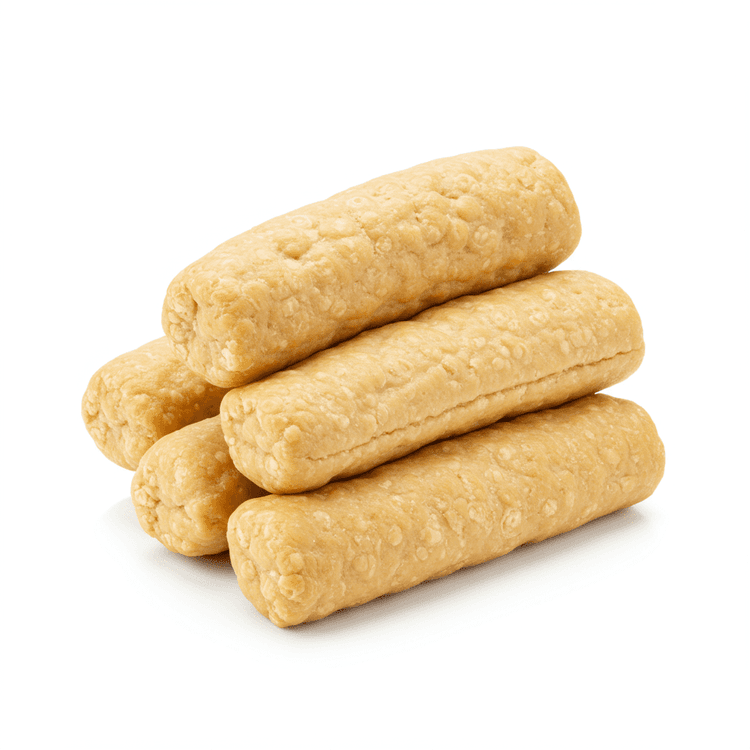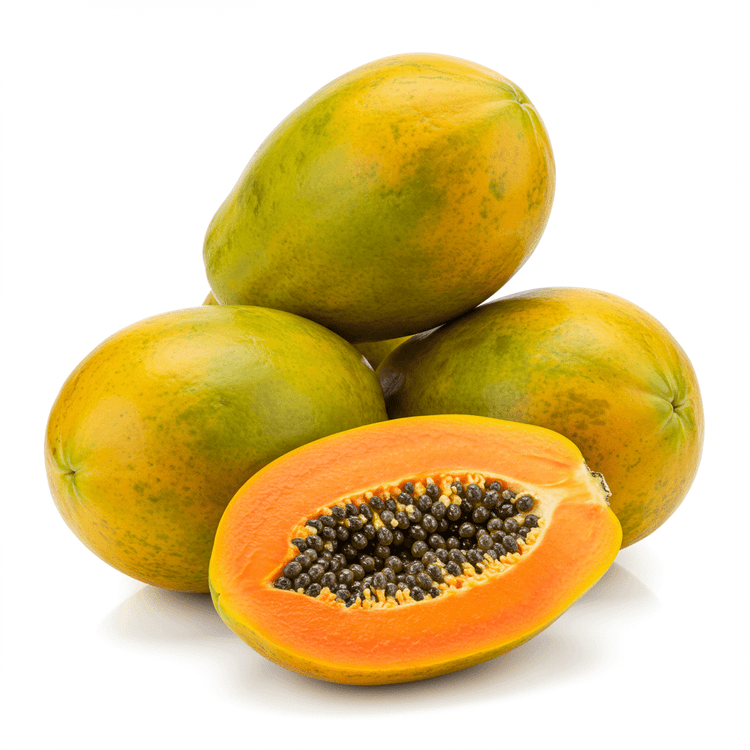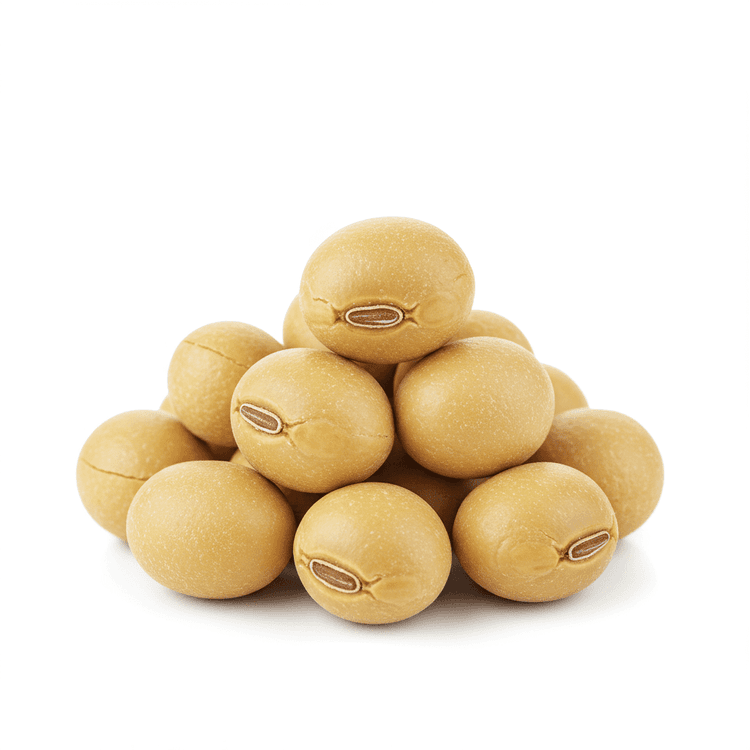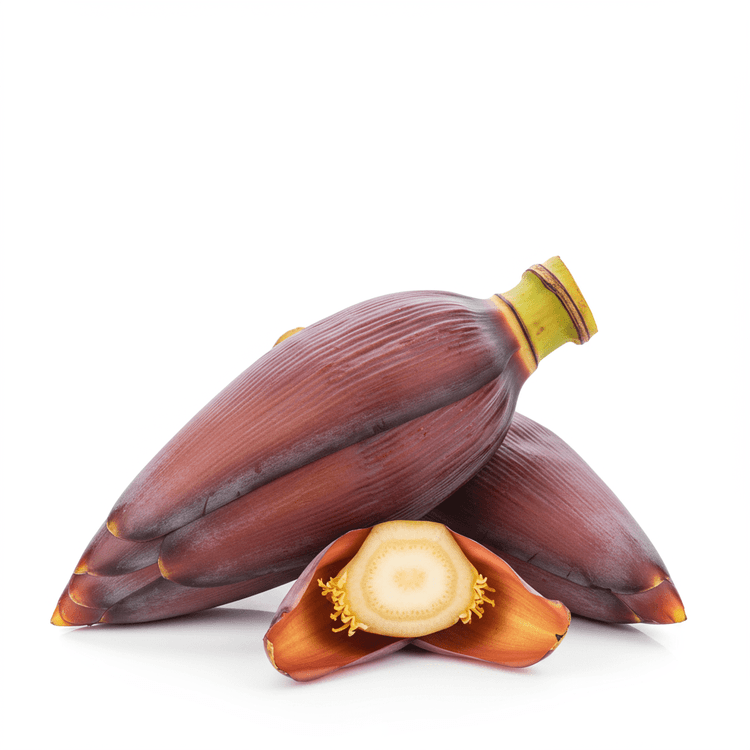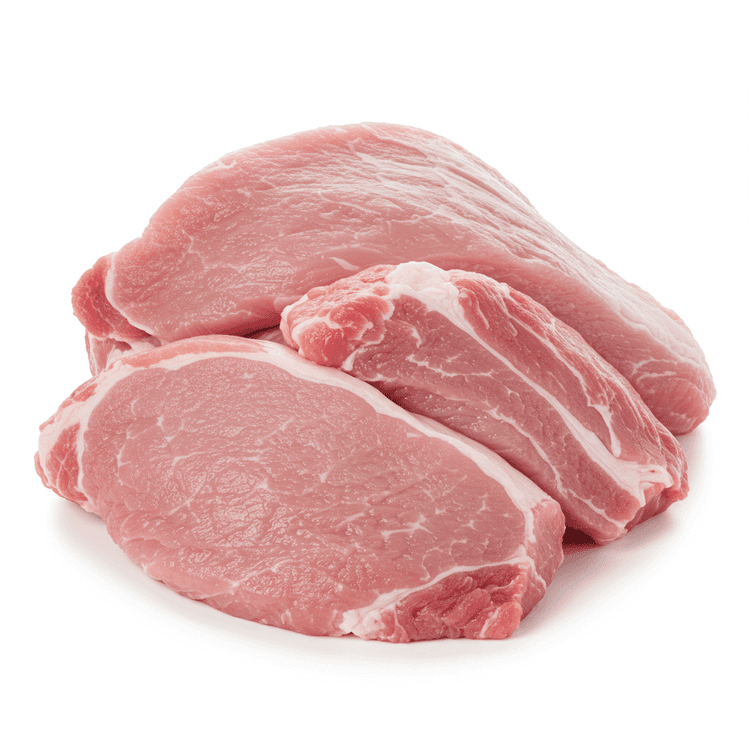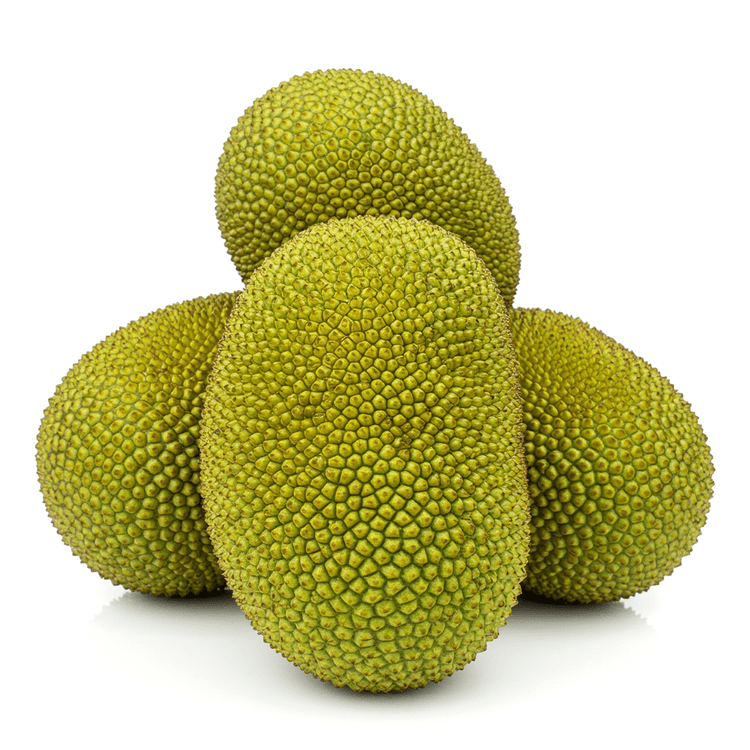
Jackfruit
Jackfruit, a tropical fruit native to South Asia, is known for its unique flavor and impressive size. The unripe jackfruit, often called 'young jackfruit', has a mild flavor, making it a versatile meat substitute with a stringy texture reminiscent of pulled pork. Ripe jackfruit, on the other hand, boasts a sweet, fruity flavor, similar to a blend of pineapple, mango, and banana. The exterior of the jackfruit is green or yellow, covered in cone-like bumps, while the edible flesh inside is yellow or orange when ripe. Because of the versatility of the texture of jackfruit, it is a common ingredient for people looking for meat alternatives.
Common Uses
- Used as a vegan meat substitute: Young jackfruit, with its neutral flavor and stringy texture, is a popular ingredient in vegan dishes, mimicking the texture of pulled pork or chicken.
- Incorporated into savory dishes: Young jackfruit can be used in curries, tacos, sandwiches, and stews, absorbing the flavors of the spices and sauces it's cooked with.
- Consumed as a fresh, tropical fruit: Ripe jackfruit can be eaten fresh, offering a sweet and aromatic tropical taste. It can be enjoyed on its own or added to fruit salads.
- Used to make jams, jellies, and preserves: The ripe pulp of jackfruit can be processed into delicious jams, jellies, and other sweet preserves, capturing its unique tropical flavor.
- Used in desserts and sweets: The sweet pulp of ripe jackfruit can be used to make a variety of desserts, such as ice cream, cakes, and puddings, providing a distinctive tropical flavor.
- Jackfruit seeds are roasted or boiled, a nutritious snack: The seeds inside the jackfruit can be roasted or boiled and eaten as a snack. They have a slightly nutty flavor and can be added to various dishes as well.
Nutrition (per serving)
Nutrition (per serving)
Calories
155.0kcal (7.75%)
Protein
2.6g (5.2%)
Carbs
38.4g (13.96%)
Sugars
31.5g (63%)
Healthy Fat
0.3g
Unhealthy Fat
0.1g
% Daily Value based on a 2000 calorie diet
Nutrition (per serving)
Calories
155.0kcal (7.75%)
Protein
2.6g (5.2%)
Carbs
38.4g (13.96%)
Sugars
31.5g (63%)
Healthy Fat
0.3g
Unhealthy Fat
0.1g
% Daily Value based on a 2000 calorie diet
Health Benefits
- Good source of fiber, promoting healthy digestion and gut health.
- Rich in vitamin C, boosting the immune system and acting as an antioxidant.
- Contains potassium, which helps regulate blood pressure and supports heart health.
- Provides magnesium, essential for bone health and muscle function.
- A decent source of plant-based protein, contributing to muscle building and repair.
- May help improve blood sugar control due to its fiber content and lower glycemic index compared to some other fruits.
Substitutes
Chefadora AI is here.
Experience smarter, stress-free cooking.
Storage Tips
Unripe jackfruit should be stored at room temperature until it ripens, indicated by a strong, sweet aroma and slightly softened texture. Ripe jackfruit can be stored in the refrigerator for up to a week. Cut jackfruit should be stored in an airtight container in the refrigerator and consumed within a few days. For longer storage, jackfruit can be frozen. To freeze, separate the bulbs, lay them on a baking sheet, and freeze until solid. Then, transfer them to a freezer bag or container. Frozen jackfruit can last for several months.
Marnirni-apinthi Building, Lot Fourteen,
North Terrace, Adelaide, South Australia, 5000
Australia
